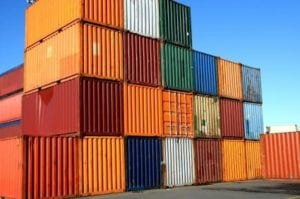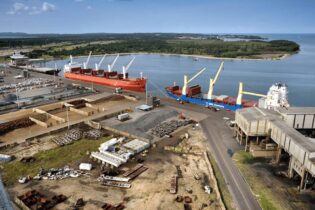About 600 containers of sugar and 2,000 vehicles were by last evening still stuck in Mombasa as Ugandan revenue and Foreign Service officials held discussions to resolve an international trade standoff.
Kenya Revenue Authority (KRA) recently directed that transit goods execute a cash bond equivalent to the tax value of the consignments imposed on them if they were to be sold in Kenya. The KRA directive, which was issued on August 29, applies to sugar imports and cars. Until recently, the normal practice has been through insurance bonds and not cash. The decision made importers and local authorities furious. They described it as a move to hurt inland states’ businesses. Richard Kamajugo, theUganda Revenue Authority (URA) commissioner for customs, said the genesis of the problem is the increased amount of Ugandan sugar on the Kenya market. Kenya suspects Uganda does not have the capacity to suddenly produce extra sugar. “They think we have no capacity so we have invited them to the sugar factories,” said Kamajugo. He revealed that held-up consignments and goods worth billions of shillings have grossly interrupted revenue collections and business flow. This has led to bad blood between Ugandan importers and revenue authorities who view the Kenyan move as “unhelpful to the region’s business process.” Analysts believe Kenya is playing “big brother wanting to have it all” in an integrating East African Community where there are already established mechanisms and platforms for resolving conflicts. Uganda cargo accounts for about 75% of the total exiting Mombasa. Jones Kiteta, a director at Eusebia, a global shipping firm, says the decision by KRA is not practical and will hurt businesses and regional relations. He adds that the ultimate cost will be met by the final consumer making business in the region more costly than it already is.Kiteta said KRA should have warned the business community: “They are supposed to go to the insurance company not the clearing agent. The whole process means when an imported car exits Busia or Malaba, the importer does not get their transit cash bond back immediately, meaning business capital is tied up.
The importer must go to a bank if they do not have cash, yet the bank will also issue the facility at a cost. If the importer chose to re-export or redirect the car to say Dar es Salaam, it means additional freight and pay costs of changing documents to KRA. “It is like somebody telling you; ‘don’t come to my place’, besides very few cars have bonds beyond Ksh1m,” observed Kiteka. Preferring anonymity, a vehicle importer in Kampala whose four cars have been stuck at Mombasa for the last 14 days, said he has been told that for every car, he will be charged $25 per day that the car spends at Mombasa. “I will pay $100 (about sh250, 000) over and above the cash bond for over a week for each car unless something happens. Then there is the cash bond, which I do not have, “ said a car importer from Coin Car Bond. The Minister of Trade, Amelia Kyambadde, was attending an NRM caucus meeting and was unavailable to comment, while the permanent secretary, Amb. Julius Onen, said he was aware of the Kenyan directive, but unable to speak because of bad health. Another clearing firm says the move is a setback and hurts confidence building in the region. After attaining the customs and common market, East Africa is awaiting two critical stages-monetary union and political federation to attain full integration. Mombasa is the shortest route for inland states that have no direct access to the sea. But Mombasa’s efficiencies and political fights grossly hurt the inland states of EAC who for a moment considered moving to the much further Dar es Salaam as an alternative. Source: http://www.newvision.co.ug





